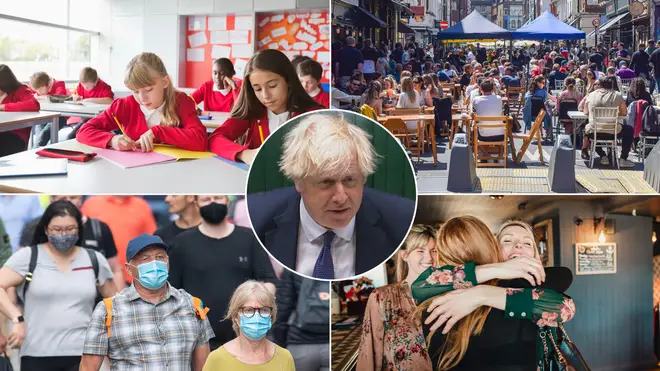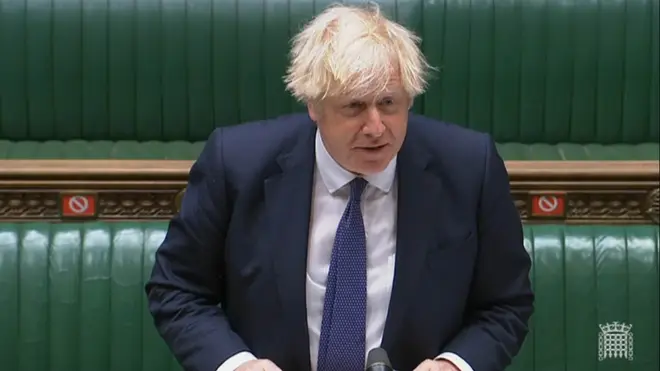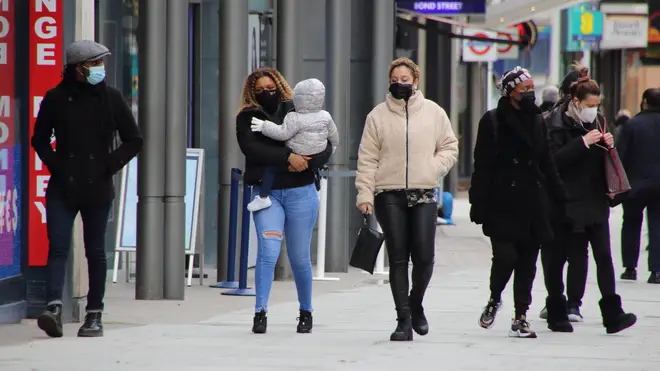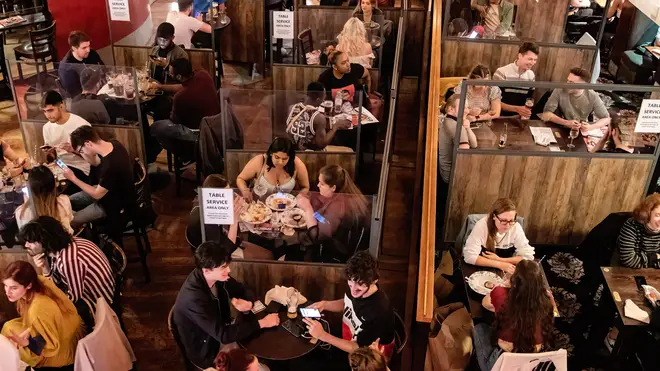Full list of freedoms set to return on July 19 in England including voluntary face masks and no quarantine
5 July 2021, 07:07 | Updated: 5 July 2021, 07:56

Boris Johnson will announce ‘Freedom Day’ plans for July 19, which could mean an end to all social distancing.
It looks like things in England are set to change in a big way this month, with ‘Freedom Day’ on the horizon.
Today, Boris Johnson is expected to announce the next stage of the lockdown easing plans, based on the most recent coronavirus data.
But with the roll out of the vaccine keeping deaths low, this could mean an end to social distancing and face masks becoming voluntary.
- What time is Boris Johnson's announcement today?
- Government's winter Covid plan could mean mandatory masks and social distancing for next 5 years
- Significant changes to Covid-19 school rules expected for autumn as testing could replace isolating

So, here at six things that could change in England later this month:
No masks
Mandatory masks could be ditched in the coming weeks, with people making their own choices whether to wear one.
This means people in England would no longer need to wear coverings over their mouths and noses in any indoor public venues.
A source told The Sun: “It’s all part of a shift from legal enforcement to common sense.
“There will be some official guidance that in certain settings, like a crowded train, it might make sense to wear a mask.
“But it will no longer be compulsory. People will be able to decide for themselves whether or not to cover their face.”

However, chief medical officer Chris Whitty previously said he thinks the use of masks should continue after July 19 to limit the spread of the virus.
Social distancing scrapped
The one metre rule could also be ditched from July 19.
According to the Sunday Times, strangers will no longer have to stay one metre apart, which is good for pubs and restaurants who have been forced to open at reduced capacity.
This means partygoers would be allowed to drink at the bar instead of table service, while clubs would also be allowed to open their doors for the first time in 18months.
Limits on stadium capacities would be scrapped, while events with mass crowds would be allowed to start up again.

Boris Johnson urges young people over the age of 18 to get vaccinated
End of social bubbles
The school bubble system currently in place would be scrapped, with some reports suggesting schools will use daily Covid tests instead.
According to the Mail on Sunday, children will no longer have to miss school if one student in their bubble tests positive.
Instead, pupils in the same class will take lateral flow tests.
A minister told the Mail: "It is not right to see people rubbing shoulder-to-shoulder in football stadiums while hundreds of thousands of children have to self-isolate even when testing negative for Covid."
QR codes ditched
Boris Johnson may also get rid of QR codes, which are being used at bars and restaurants.
Currently, people have to scan in their details so they can be contacted if someone at the location later tests positive for Covid-19.
While this check-in is expected to end, some venues may choose to continue asking for their customers’ details.

End of holiday quarantine
It is thought that Brits who have been fully vaccinated won’t have to self-isolate if they are returning from amber list countries.
Travellers who fly to amber list countries currently have to quarantine for 10 days on their return.
They also have to take a pre-arrival Covid test, as well as tests on day two and day eight of quarantine.
Holiday hotspots such as Spain, Portugal and Greece are on the amber list.
No self isolation
Fully vaccinated people may not need to isolate at all if they come into contact with someone who has tested positive for Covid.
At the moment, anyone who has been in close contact with someone who has Covid must stay at home for ten days.
This could be replaced by daily testing, with those receiving a negative result no longer having to stay inside.






















